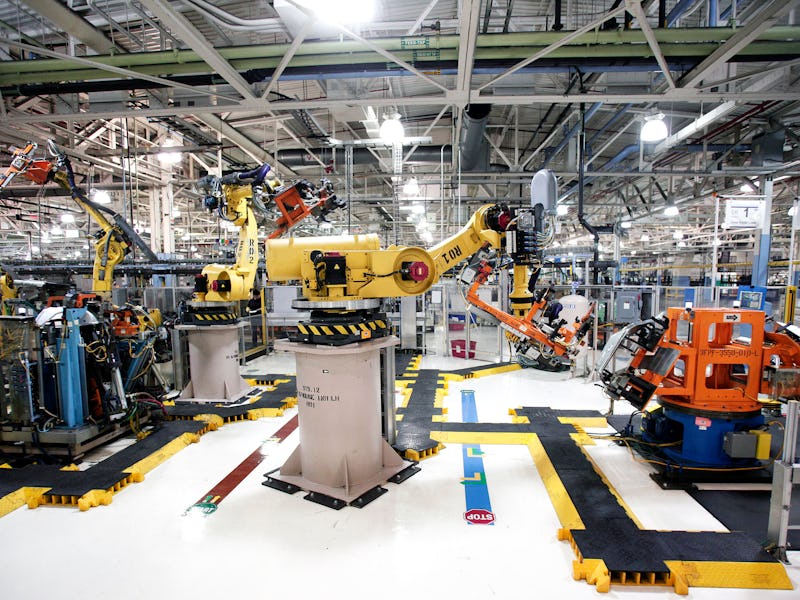Donald Trump's Presidency Is Going to Replace the Working Class With Robots
He'll bring jobs to America... robot jobs.

On Thursday, The Wall Street Journal reported that Donald Trump will likely nominate Andrew Puzder to be his secretary of labor. The selection of Puzder, who is the CEO of fast food company CKE Restaurants, all but confirms that Trump likely has no plans to follow through on one of his campaign’s main talking points: the promise of returning good, paying jobs to American workers.
Puzder, in addition to being one of the least experienced labor secretaries since the Reagan administration, is an outspoken opponent of raising the minimum wage. The CEO has indicated support for automating businesses, particularly in the service industry. In other words, robots will be coming for the working class’s jobs.
Other fast food companies like McDonald’s have already begun exploring avenues toward automation, installing self-service kiosks in restaurants, which pose an obvious threat to the jobs of cashiers. Though the fast food chain denies the kiosks will place cashiers’ jobs in jeopardy at the moment, it’s hard to imagine things won’t move in that direction once it becomes cost-effective to do so. McDonald’s cited that one of the reasons for this shift is the increasing cost of labor, due in part to the local and state-government driven minimum wage increases occurring throughout the country.
While being replaced by robots was not among working class Trump supporters’ top concerns during the election, the reality of this change is becoming ever more apparent. Earlier this year, a White House study predicted an “83 percent chance that workers earning less than $20 per hour will lose their jobs to robots.” Whether people like it or not, automation is coming. Robot workers are safer and more efficient that humans can ever reliably be.
Trump’s repeated promises to keep jobs in America — the chief reason he was able to win support from traditionally democratic union workers — should mean in theory that his administration will oppose trends toward automation. But, as has been the case with so many of his campaign promises, Trump has either changed his mind, or never actually intended to follow through with it in the first place.
This is bad news for American workers, whether they care to recognize it or not. If one cared to believe the claim that rising wages are a primary driver of automated workers, then it would follow the logic that halting those wages would stem the tide of robots and kiosks in the workforce. At least in that case, even if they still aren’t being paid a living wage, the workers in question would get to keep their jobs, right? In the immortal word of Mr. Trump, it appears that line of thinking is, in fact, “Wrong.”
Low-wage American workers are headed for what can only be described as a double whammy. Not only will their wages remain stagnant, but in the coming years, they will also possibly face being replaced by machinery. And it’s unlikely that Trump, who is so hellbent on cutting government spending that he’ll risk damaging Boeing’s stock to score some Twitter points, will prove to be supportive of the kind of public education and job retraining programs that could help displaced workers stay relevant in a newly automated economy. Low-wage workers may have won the election, but soon it might not feel that way to them.